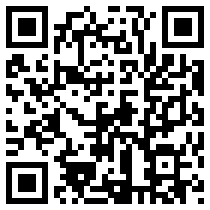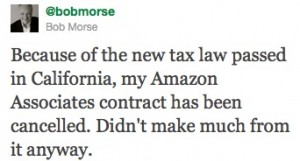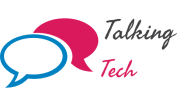by Bob | Aug 27, 2011 | Local Tech Notes, Social Media, web hosting
When QR Codes started showing up in magazines a year or so ago I thought they were a gimmick. I still think, for the most part, they are. After all, why not just have a URL that can be typed in to a browser either on your computer or mobile browser?
But the discussion of QR Codes has come up with a couple clients recently so I thought I’d take a closer look at what’s being done with them. Apparently, they are cropping up everywhere. And as the use of smartphones continues to grow, they may be around for quite some time – or at least some form of what this writer calls ‘Real World Hyperlinking’ will be.
In case you don’t know, QR Codes are those ugly little squares with odd squiggles on them that, with a QR Code reader you can quickly scan and be taken to some resource on the web, read a message, get a phone number and have your phone call it and so on. They are easy to make and place in email, on the web, in print ads or business cards.
But what’s the real value proposition? There are a couple really basic ideas that make QR Codes worth implementing:
- With the increase use of smartphones and free QR Code reader apps, you can give mobile users a quick way to connect with you. Once you have the app on your phone, it’s so easy to point it at a QR Code instead of typing in a web address. Convenience and speed are the language of the mobile world.
- There is something fun about pointing your phone at a QR Code and finding out what lies behind it. And if a business or organization puts something special behind it it’s a great opportunity to engage with that potential client or customer. As the article linked above states:
“While it’s just as simple to look up information on the mobile web, savvy businesses are realizing that one of the main benefits of a QR code campaign is to provide their mobile customers with instantaneous access to something that is unique and can’t be accessed in another way.”
So don’t just point your QR Codes to your home page. Make something special, either a web landing page or a mobile mini-site and offer something special like unique information, a special video, discount codes, or a contest.
Want to get started with QR Codes? Here are some resources:
Are you using QR Codes in your marketing? Here’s one I created:

by Bob | Jul 11, 2011 | Life notes, Local Tech Notes, Open Source Web Development, Social Media
Last week I had my 15 seconds of almost fame. I’ve been an Amazon Affiliate for years. When I got m y email from Amazon that they were closing my account because of the sales tax law passed by California. For some reason my name got passed to a couple journalists as a spokesperson for the 10,000 or so affiliates who had their business shut down without recourse.
y email from Amazon that they were closing my account because of the sales tax law passed by California. For some reason my name got passed to a couple journalists as a spokesperson for the 10,000 or so affiliates who had their business shut down without recourse.
So while I was up on a ridge above Loleta watching my daughter rider her mustang I did a phone interview with a writer from SF Weekly. I tried to steer him to someone who had actually made some good money and so had more at stake, but I guess they couldn’t connect.
A couple days later I was interviewed by a reporter from the Eureka Times-Standard. Again, I tried to slough her off to someone else. But she was persistent so there I am again. I guess it shows how easy it is to get noticed using the right keywords in social media posts, especially if the topic is newsy.
Although I hadn’t made much money from my affiliate program, I know others who have made thousands and will now be forced to find alternatives. These folks generate income by adding value floating on top of the Amazon retail river. Since Amazon cut them off, the State of California will not gain any income from their sales tax. In fact, big players in this realm will simply move or move their “official” address to another state, thus reducing the revenue in income tax for the State as well. This is a fine example of unintended consequences of what seems like a sensible action. I understand the State needs revenue, and don’t mind paying sales tax. But this was clearly not the way to go about it.
This actually does hurt me more than I let on as I have been working on a number of personal web projects where the Amazon Affiliate program would have played a part in building sustainable revenue. I guess I will have to rethink that part of my plan. I’ve also been looking longingly at property in the state of Washington.
If you have a story to share about your Amazon Affiliate program, I’d love to read it. Put it in the comments!
by Bob | Feb 10, 2011 | Life notes, Local Tech Notes, SEO, Social Media
 Well, at times at least this one seems moribund. But as a form I think the blog is alive and thriving in spite of all the new forms of self-expression that have exploded recently. I asked this question as sort of a straw man to anchor my latest Tech Beat article which appears today in the Times-Standard. In that article I gave some tips on how to make an effective blog. I also promised I would post a list of other blogging resources for further learning here on Talking Tech. I’m a little late getting this together, but here is that list. It’s not intended to be comprehensive. It’s short on purpose, not to overwhelm. But there’s certainly plenty of good advice to be found in these resources. Please feel free to offer your own advice and/or resources in the comments.
Well, at times at least this one seems moribund. But as a form I think the blog is alive and thriving in spite of all the new forms of self-expression that have exploded recently. I asked this question as sort of a straw man to anchor my latest Tech Beat article which appears today in the Times-Standard. In that article I gave some tips on how to make an effective blog. I also promised I would post a list of other blogging resources for further learning here on Talking Tech. I’m a little late getting this together, but here is that list. It’s not intended to be comprehensive. It’s short on purpose, not to overwhelm. But there’s certainly plenty of good advice to be found in these resources. Please feel free to offer your own advice and/or resources in the comments.
Recent Blog Tip Articles
- Top 10 Business Blogs and Why They Are Successful
- 6 Ways to Constantly Produce Quality Blog Content
- 26 Ways to Enhance Your Blog Content
- 11 Ways to Create Great Blog Content
- How and Why I Use Evernote (I mention Evernote in the T-S article)
- 21 Ways to Increase Blog Traffic
Blogging Resources
- Problogger
- Chris Brogan on Blogging
- More Blogging Resources from Duct Tape Marketing
by Bob | Feb 6, 2011 | Life notes, Social Media
I am a big Frank Rich fan. I look forward to reading his essays at the New York Times every weekend. But this Sunday I think he went a bit off the rails, criticizing those who attribute social media services with having a role in advancing political change. Not only does he complain that people are giving too much attention and credit to Twitter and Facebook he also aligns himself with the curmudgeonly Malcolm Gladwell who continues his tortured arguments against social media cheering with another post on the New Yorker website.
I offer David Weinberger’s blog post to provide a more thorough analysis and counter argument to Gladwell’s supercilious stance than I ever could. But I thought it strange that in the same New York Times edition as Rich’s column there is an article detailing how a Facebook page documented the brutal police beating death of a young Alexandria businessman that became a community of Egyptian dissidents. The page evolved into a forum for organizing the protests in Egypt. Maybe Frank should read more of his own publication instead of the New Yorker (I confess, that I am a subscriber myself).
What do you think? Is social media playing an important role in stirring political and social change?
Update: The Google marketing executive Wael Ghonin recently released from custody and widely attributed with having helped fuel the peaceful revolt in Egypt, thanks Facebook as a platform for organizing. But pundits like Gladwell and Rich know better from their distant perches.
by Bob | Aug 1, 2010 | Life notes, Local Tech Notes, Social Media
 This past week I had an article appear in the local paper trying to explain Twitter and why it’s a such a useful tool and how to get started using it. The premise was that I keep running in to resistance to Twitter even among technically adept and adventurous people. I do admit in the article that Twitter isn’t for everyone. But I find it far more useful in so many ways than Facebook, especially for staying on top of interesting news, meeting new people and discovering very cool resources.
This past week I had an article appear in the local paper trying to explain Twitter and why it’s a such a useful tool and how to get started using it. The premise was that I keep running in to resistance to Twitter even among technically adept and adventurous people. I do admit in the article that Twitter isn’t for everyone. But I find it far more useful in so many ways than Facebook, especially for staying on top of interesting news, meeting new people and discovering very cool resources.
I got some good responses from the article, mostly from people already on Twitter. And it’s clear when I crawl out from behind my computer and venture in to RL that people are reading the article. But I’m not sure it’s made much impact. I met one gentleman on the way to a play last night who mentioned he reads my articles and enjoyed the one on Twitter. But when I asked him if he uses Twitter he said, “What? No. God, no!” And we all laughed as if that was an imminently reasonable stance. But I didn’t have a chance to ask him “Why not?”
I was slow to catch on, myself. Like so many new toys, I was fast to sign up as soon as I heard about it way back in 2007. But it was over a year before I really started to explore it. And as the service has added features and the third party tools have improved the user experience, I have come to rely on it for so many things. I can go days without looking at or posting to Facebook. But Twitter has become a regular habit. Maybe I’m just a twit (comments welcome).
One aspect of Twitter I haven’t explored yet are chats. I’ve known about them for quite a while, but haven’t had much opportunity to participate. But I found this Google doc spreadsheet that lists over 150 chats on all kinds of topics. Something for everyone?
Finally, if you’re getting in to Twitter I highly advise using a third-party tool for discovering people, managing Twitter streams and getting the most out of the service. My favorite tool d’jour is HootSuite. It’s a rich application that can be run in a web browser, on your desktop, IPhone, Android and soon Blackberry. You can manage lists, searches, and multiple social media accounts all within one user friendly interface. And it’s free! (There is a pro IPhone version).
by Bob | Apr 25, 2010 | Local Tech Notes, Open Source Web Development, Social Media
I returned from Drupalcon in San Francisco on Thursday and have spent the last few days catching up with work and life. I’m just starting to sort through all my thoughts on this great conference. First, I wish I could have attended even more sessions. But fortunately, they were all recorded and are already available on archive.org.
Additionally all three keynotes were excellent and inspiring both in terms of Drupal and for the open source and open government movements: Dries Buytaert Keynote | Tom O’ Reilly Keynote | Open Government Keynote.
This was the largest Drupalcon yet, and much was made of Drupal’s growth and its growing influence on the web. Dries’ keynote has some interesting statistics on that. Overall, there was a sense that Drupal was quickly transforming from one of several content management systems to a major player in enterprise, government and non-profit sectors. It felt good to be a small part of this community.
I came away with plenty of ideas on business processes, module concepts, the transition to the next version of Drupal due out later this year. I plan to write more about these areas in the coming days and weeks.


 y email from Amazon that they were closing my account because of the sales tax law passed by California. For some reason my name got passed to a couple journalists as a spokesperson for the 10,000 or so affiliates who had their business shut down without recourse.
y email from Amazon that they were closing my account because of the sales tax law passed by California. For some reason my name got passed to a couple journalists as a spokesperson for the 10,000 or so affiliates who had their business shut down without recourse. Well, at times at least this one seems moribund. But as a form I think the blog is alive and thriving in spite of all the new forms of self-expression that have exploded recently. I asked this question as sort of a straw man to anchor
Well, at times at least this one seems moribund. But as a form I think the blog is alive and thriving in spite of all the new forms of self-expression that have exploded recently. I asked this question as sort of a straw man to anchor 